sta·tus sym·bol
noun
1. a possession that is taken to indicate a person’s wealth or high social or professional status.
Many luxury goods are often considered status symbols. Luxury Watches have been a status symbol ever since they were invented. The history of watches began in 16th century Europe. In 1574, the first known pocket watch was created in Switzerland. Because of their rarity, a person who owned a pocket watch was perceived to have money and status.
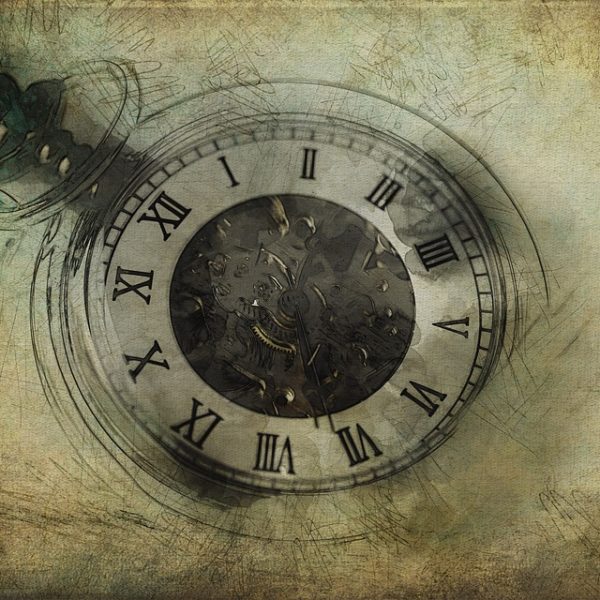 The original pocket watches only showed the hours.By 1680 the minute hands were added to clocks and the first- second hand made an appearance 10 years late. When Charles II of England introduced waistcoats the popularity of pocket watches increased. This instigated changes to the pocket watch, the shape of the watch was flattened and curved to avoid damaging clothing. The face of the watch was covered with glass in 1610 to protect the clock’s hands from damage.
The original pocket watches only showed the hours.By 1680 the minute hands were added to clocks and the first- second hand made an appearance 10 years late. When Charles II of England introduced waistcoats the popularity of pocket watches increased. This instigated changes to the pocket watch, the shape of the watch was flattened and curved to avoid damaging clothing. The face of the watch was covered with glass in 1610 to protect the clock’s hands from damage.
With the advancement of technology in the 19th century, mass production blossomed in the United States. Cheaper and more accessible materials allowed for the mass production of pocket watches. For the first time, the pocket watch became available to ordinary people vs. just the wealthier class.
The first wristwatch was created in 1812, for the Queen of Naples. They had previously been introduced in the 1570s as an “arm watch”. The wristwatch was primarily worn by women as the watches were prone to damage by the elements.
Men continued the trend of pocket watches. In 1880, Constant Girard (Girard-Perregaux) provided two thousand wristwatches for German Naval Officers. Around that time Louis Cartier and Edmond Jaeger developed the Santos wristwatch for their friend Alberto Santos- Dumont, a British aviator. Dumont wore it while flying as it allowed him to keep both his hands on the controls of the plane while timing his flights.
Fast forward to today, with all the mass produced luxury watches and mobile phones that tell you the time, luxury timepieces that focus on quality, design, and complexity still retain value and status.
In a social context, people look at your watch and then determine your level of education, taste, wealth and social position. For men, it may be the only piece of jewelry they wear other than perhaps a wedding ring. Some people actually wear there watch to determine the time, others to make that good impression.
WHICH LUXURY WATCHES HOLD THEIR VALUE
Do you have a luxury watch you wish to sell? How do you know the value of your piece, has it retained its value or is it one of the select watches that ultimately increased in value? You need to approach a company that has a staff that knows the market, has experts on hand that can get you the highest market value possible for your valued timepiece.
Regal Estate Jewelry and Watch Buyers has a resale network built over decades and expertise in Tiffany, Cartier, Harry Winston, and other high-end jewelry & watches. We are able to pay the highest prices for previously-owned fine jewelry and watches.
Contact Regal Estate Jewelry and Watch Buyers to get a quote on the best price to sell a watch through their experienced watch master and certified buyers and sellers of precious stones, diamonds, and quality watches. It is a highly trained and qualified place to get a valuation on your jewels.
Call toll free: 1-866-475-5389
HARRY WINSTON LUXURY WATCHES
The Premier Collection was the first luxury watch collection introduced by Harry Winston in 1989 and this has now become an iconic signature for the company. The three arches on the case echo the facade of the Harry Winston Salon on Fifth Avenue. The Harry Winston name has been synonymous with the best that there is. The brand continues to set the standard for the ultimate in high-end watchmaking and fine jewelry. Mr. Winston has been known as the “King of Diamonds” and the “Jeweler to the Stars”.
The company was founded in New York City in 1932. In 1935, Harry Winston purchased the Jonker, a 726-carat uncut rough diamond. A fun piece of history is that he decided to send this precious piece of rough diamond via regular, registered mail to New York for $0.64. Ultimately, the Jonker was cut into twelve individual stones, the largest became an emerald-cut, weighing 125.35-carats.
In the 1940s, the iconic Winston Cluster technique was developed. Harry Winston and his designers begin the innovation of clustering individual diamonds to dictate the overall design. This put the brilliance of each gemstone in the forefront instead of the metal settings.
In 1944 the company lent Jennifer Jones diamonds to wear to the Academy Awards. She won the Best Actress award that evening and established Harry Winston as the “Jeweler to the Stars”. In 1949, Harry Winston acquired the Hope Diamond, a 45.52-carat rare blue diamond, once owned by Louis XIV, Marie Antoinette, and Lord Henry Hope.
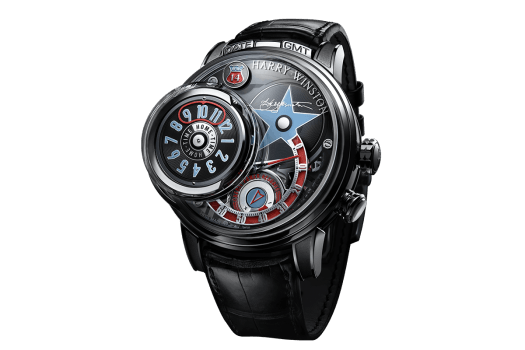
1952 Life Magazine reports that Harry Winston owns the world’s second largest collection of historic jewels. The British royal family owns the largest collection! In 1958 he donates the Hope Diamond to the Smithsonian Institution in Washington, D.C. This donation helps to establish the museum’s National Gem Collection. (By 1997 The Smithsonian opens the Harry Winston Gallery, housing the famed Hope Diamond.) Mr. Winston dies in New York in 1978, at the age of 82.
In 2001 the company introduces the Opus Series watches, creating a new limited edition timepiece annually (Photo (left) credit: harrywinston.com). In 2004 Harry Winston introduces the world’s first timepiece crated in Zalium, a zirconium-based alloy. In 2009 the house debuts Histoire de Tourbillion, an exclusive collection of timepieces depicting the complex craftsmanship of watchmaking’s celebrated complications.
PIAGET LUXURY WATCHES
Piaget’s first complication watch dedicated to women was the Limelight Stella Watch. Piaget utilized the moon as a basis for its design, a symbol of timeless femininity. They focused on their aesthetic and lyrical nature. With the march of time, comes dreams and imagination.
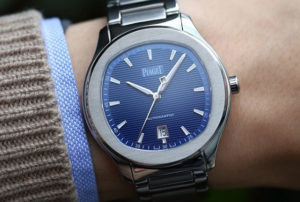 The origins of Piaget started in 1874, on the family farm of Georges- Edouard Piaget. He was 19 years old when he began to dedicate himself to the manufacture of components and high precision movements. In 1943, Piaget became a registered trademark. The company was renowned for its movements, and then for its watches. In 1957 Piaget made the revolution of “ultra-thin” a signature of the brand. Their hand- wound 9P caliber watch created a sensation at the Basil Fair. In 1960, an ingenious micro-rotor concept enabled the company to launch the thinnest automatic movement in the world, the 12P. This helped establish Piaget as a brand of elegant watchmakers. (Left Photo Credit: watchshopping.com)
The origins of Piaget started in 1874, on the family farm of Georges- Edouard Piaget. He was 19 years old when he began to dedicate himself to the manufacture of components and high precision movements. In 1943, Piaget became a registered trademark. The company was renowned for its movements, and then for its watches. In 1957 Piaget made the revolution of “ultra-thin” a signature of the brand. Their hand- wound 9P caliber watch created a sensation at the Basil Fair. In 1960, an ingenious micro-rotor concept enabled the company to launch the thinnest automatic movement in the world, the 12P. This helped establish Piaget as a brand of elegant watchmakers. (Left Photo Credit: watchshopping.com)
The first Piaget Salon was established in Geneva in 1959. It was there they could display their finest jewelry and watch creations. The brand caused a sensation in 1963 when they launched the first watches featuring dials made of ornamental stone. Their creations drew the attention of Jackie Kennedy, Elizabeth Taylor, and Sofia Loren. Piaget presented art in their level of execution and design. In 1967 they started a collaboration with Salvador Dali. Over 30 types of ornamental stones embellish its creations.
In 1979 the Piaget Polo watch was designed. The brand became associated with the sport of kings and became symbolic of the “beautiful people”. Their work displayed a feeling of relaxed elegance.
Piaget’s spirit of freedom established a new form with the original Possession line. It was an addictive jewelry collection launched in 1990. The ultra-thin watch dominates all their watch creations and became a pinnacle of casual chic.
ROLEX LUXURY WATCHES
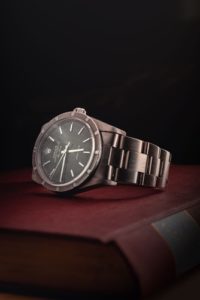
Rolex is one of the best investment watches on the market. Some luxury watches are timeless (excuse the pun). A Rolex is one of the most recognizable names in the luxury watch industry. Rolex established itself in the early 20th century as makers of exquisite timepieces.
Many people have given or received an entry level Rolex as a graduation gift and it may have become a treasured family heirloom and a valuable investment for future generations.
In the Deco era ( the1920‘s) Rolex made exceptionally beautiful ladies watches. Fitted with diamonds and silk moire’ straps they were perfect for evening wear and evoked glamour and luxury.
The first waterproof watch was made by Rolex in 1926, aptly named the Oyster. Mercedes Gleitze, and young English swimmer wore the Rolex Oyster while crossing the English Channel. This was touted as one of the greatest triumphs in watchmaking.
The first self-winding automatic mechanism was another Rolex achievement, invented in 1931. These watches contained a Perpetual rotor. By 1945 they added the first date- just, a self-winding wristwatch to display a window with the date in it.
From the depths of the ocean to the heights of Mt. Everest, Rolex has been there. You may have noticed James Bond wearing many Rolex watches throughout the franchises long history. Rolex even was there to fly the friendly skies, becoming the official watch of several airlines, including Pan Am. The GMT-Master displayed daytime from nighttime with a two-tone blue and red bezel. By 1956 you could not only tell the time but also view the date and day on your Oyster Perpetual Day-Date watch.
Popular with the ladies was the Rolex Crown collection from the late 1970s. These pieces have a specific reference number correlating to the precious stones used in the piece.
PATEK PHILIPPE LUXURY WATCHES
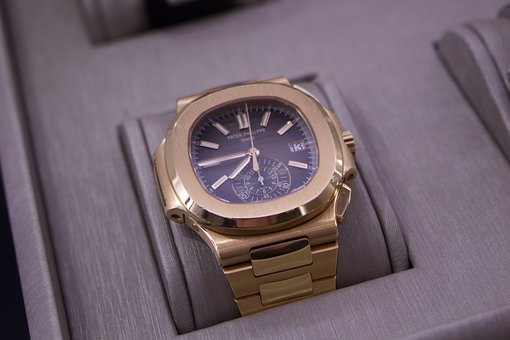 Patek Philippe was founded in 1839 by Antoine Norbert de Patek and Francois Czapek. In their nearly two centuries of existence, they have developed countless pieces of technology. Because of their innovations the company has been recognized as one of the premier makers of watches, producing some of the finest timepieces ever made. Patek wanted to grow the companies international reputation so he traveled to the United States in 1851. He began working with Tiffany & Co. and their partnership has continued to this day. Patek Philippe quickly gained a highly respected reputation within the American marketplace.
Patek Philippe was founded in 1839 by Antoine Norbert de Patek and Francois Czapek. In their nearly two centuries of existence, they have developed countless pieces of technology. Because of their innovations the company has been recognized as one of the premier makers of watches, producing some of the finest timepieces ever made. Patek wanted to grow the companies international reputation so he traveled to the United States in 1851. He began working with Tiffany & Co. and their partnership has continued to this day. Patek Philippe quickly gained a highly respected reputation within the American marketplace.
The company was recognized for its keyless winding and hand-setting system. They later went on to gain a patent for perpetual calendar mechanisms for pocket watches. In 1868, the first Patek Philippe wristwatch was born. It included a split-seconds hand, chronograph, perpetual calendar and minute repeater. In 1902 they established the first double chronograph on a watch face. For the ladies watch in 1916, Patek Philippe produces the first complicated ladies wristwatch with a five-minute repeater.
The company continues to achieve many firsts, the first split-seconds chronograph wristwatch (1923) & the first wristwatch with a perpetual calendar (1925). By 1944 Patek Philippe wins a record number of first prizes for precision in the Geneva Observatory competition. In 1956 the company produces the first all-electronic clock. World -time watches displaying the various time zones was patented by Patek in 1959. Patek Philippe still retains an unbeaten record for world timekeeping precision for a mechanical watch.
AUDEMARS PIGUET LUXURY WATCHES
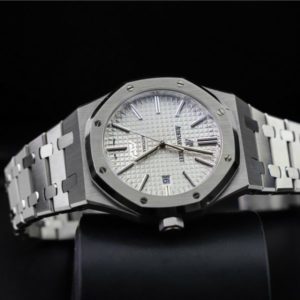 Since 1875, Audemars Piguet has been producing elegant luxury watches and movements. Jules-Louis Audemars and Edward-Auguste Piguet laid down the foundation as one of the original Swiss watchmakers. To date, the business is still led by its founding family. Audemars oversaw the technical portion of the luxury timepieces and Piguet ran the business end. In their early stages, the company produced pocket watches equipped with complications. Their repertoire included a chronograph pocket watch equipped with a perpetual minute repeater and by 1889 the company won a medal at the World Exhibition in Paris for a complex pocket watch. The Audemars Piguet 1972 sports model was a game changer for the luxury watch market. The Royal Oak sports watch became one of the most famous watch designs of the century and is considered to be the flagship model of the company. This was one of the first sports watches produced by a luxury brand and the company encased it in a striking steel case.
Since 1875, Audemars Piguet has been producing elegant luxury watches and movements. Jules-Louis Audemars and Edward-Auguste Piguet laid down the foundation as one of the original Swiss watchmakers. To date, the business is still led by its founding family. Audemars oversaw the technical portion of the luxury timepieces and Piguet ran the business end. In their early stages, the company produced pocket watches equipped with complications. Their repertoire included a chronograph pocket watch equipped with a perpetual minute repeater and by 1889 the company won a medal at the World Exhibition in Paris for a complex pocket watch. The Audemars Piguet 1972 sports model was a game changer for the luxury watch market. The Royal Oak sports watch became one of the most famous watch designs of the century and is considered to be the flagship model of the company. This was one of the first sports watches produced by a luxury brand and the company encased it in a striking steel case.
Another unique model, which can now only be found in the second-hand market, the Edward Piguet, is designed in an elegant rectangular case and is the hallmark of this line.
We have identified some of the major watchmakers that retain value on the resale market because of brand recognition, demand, and rarity. The most expensive watch brands in the world (think Rolex and Patek Philippe) can demand a high ticket price because of their style, technical sophistication, and, of course, reputation. Call toll free 1-866-475-5389 to get a free quote on your watch.
Call toll free: 1-866-475-5389

